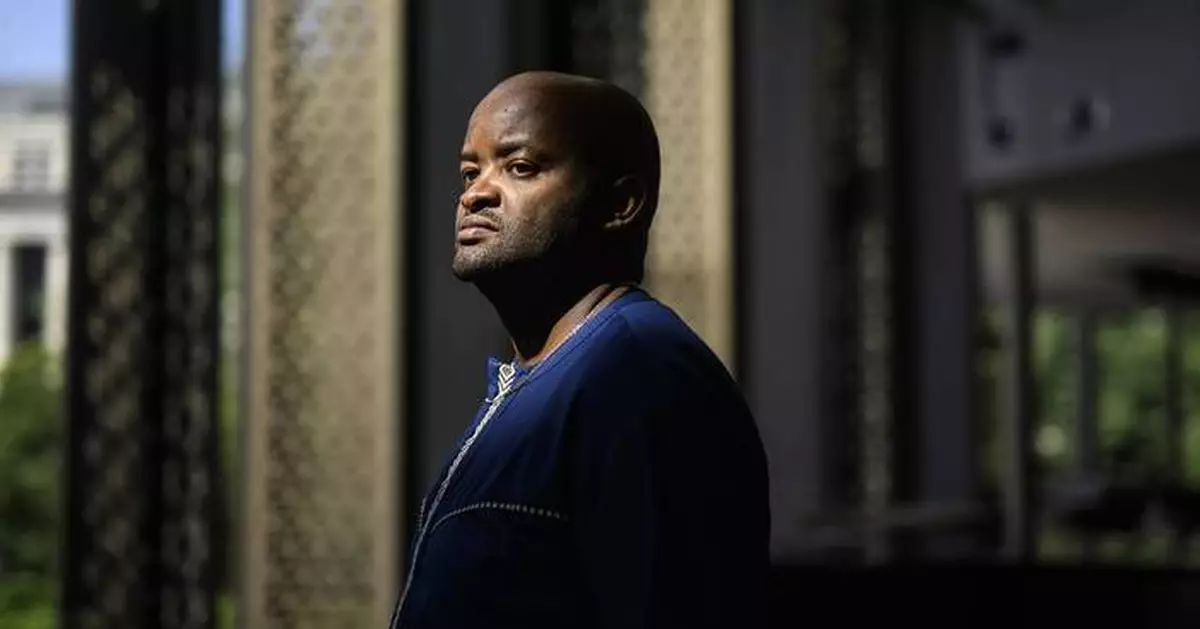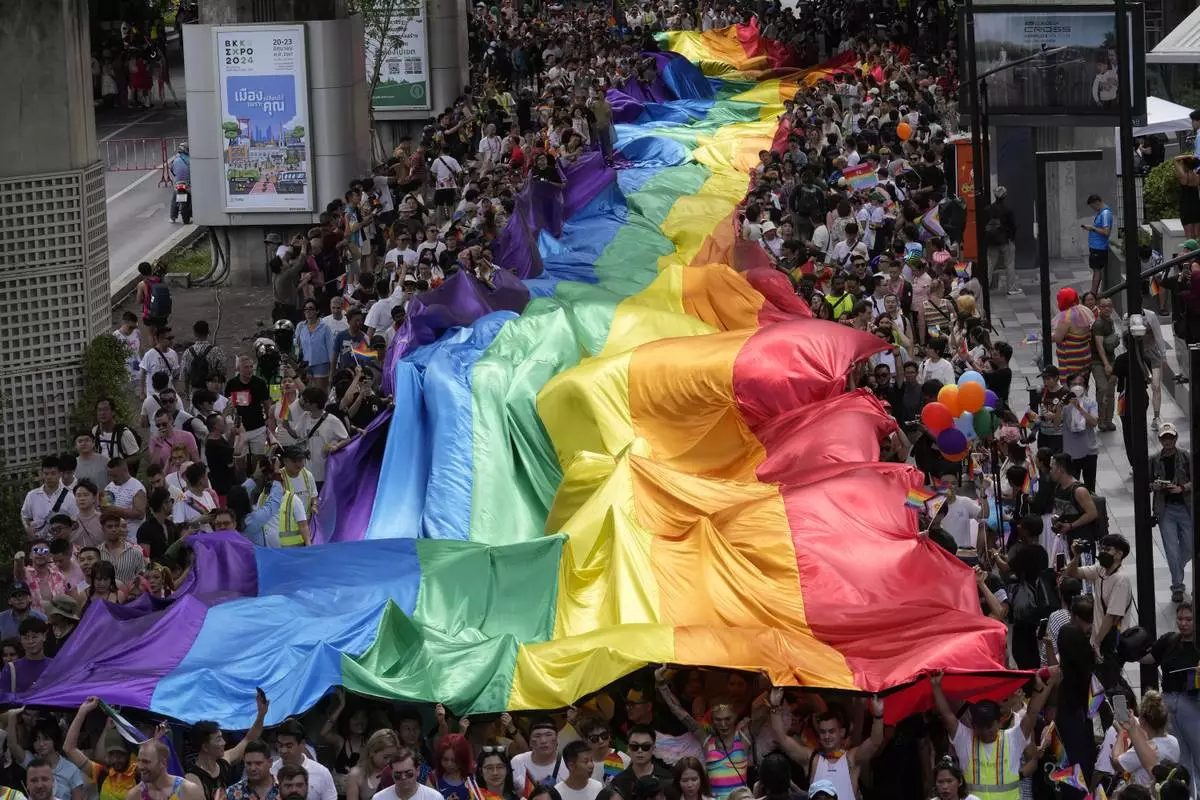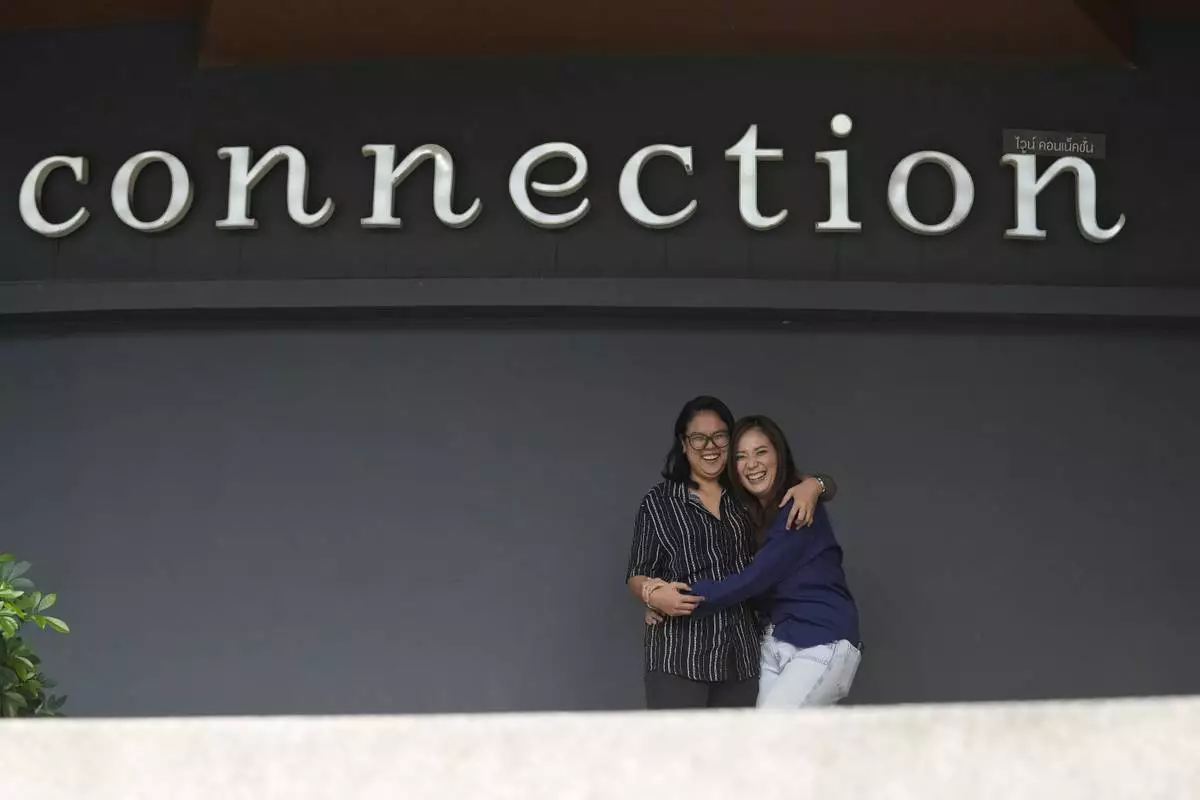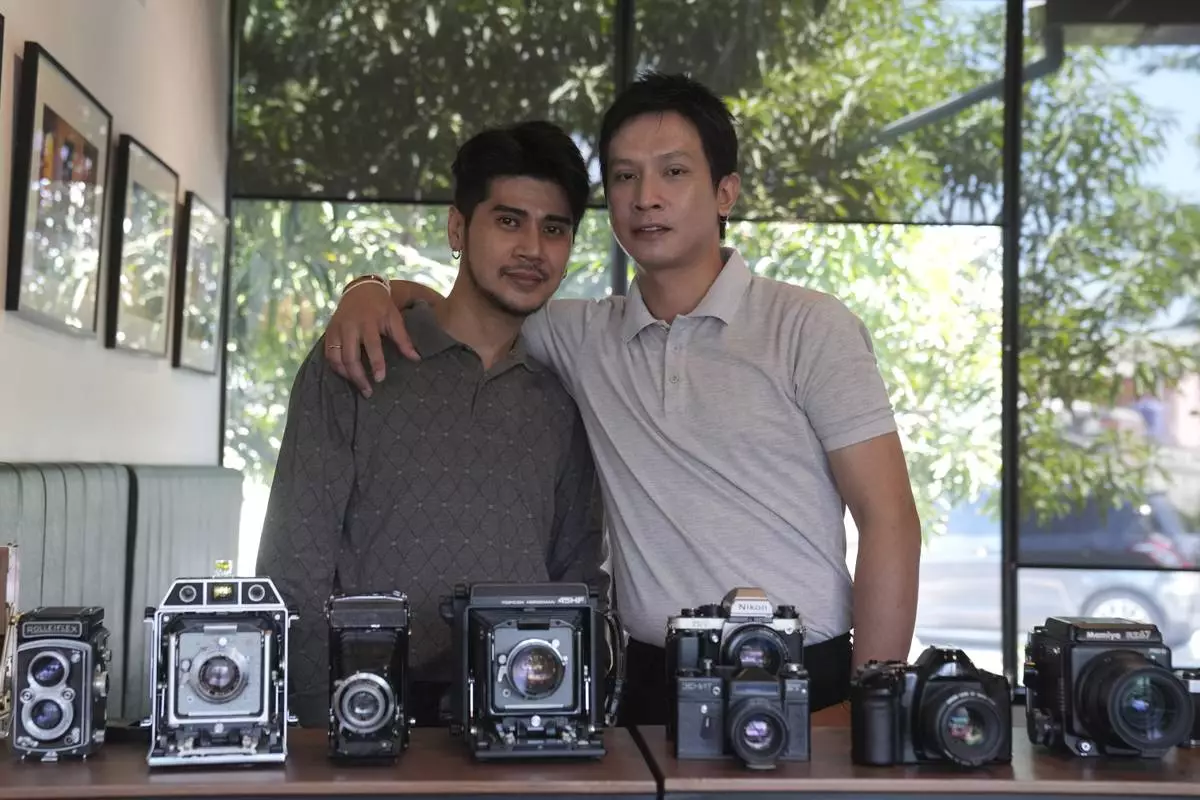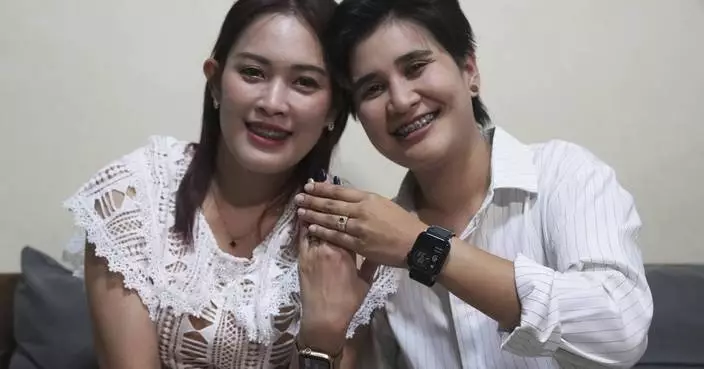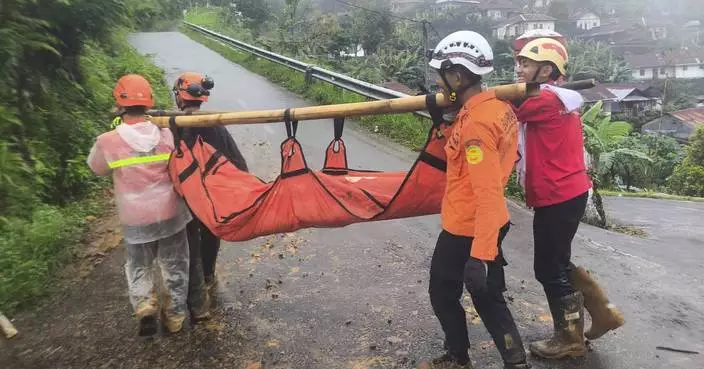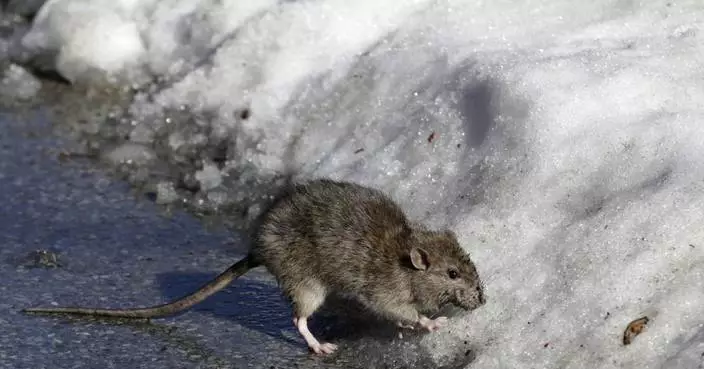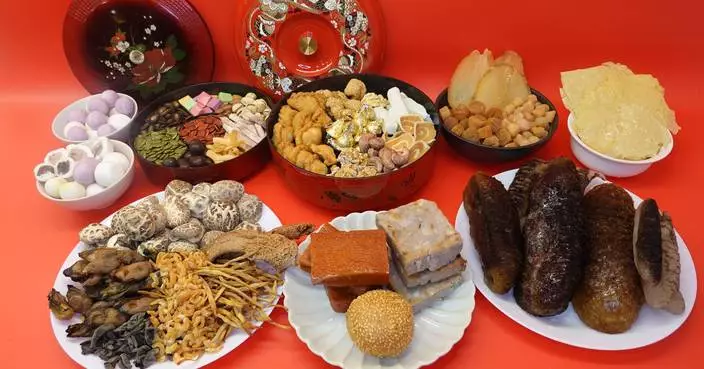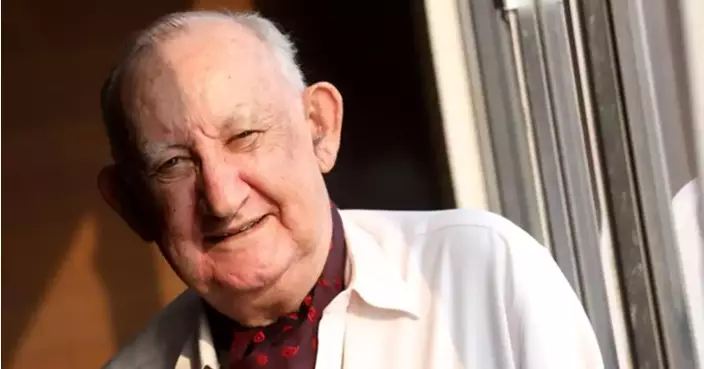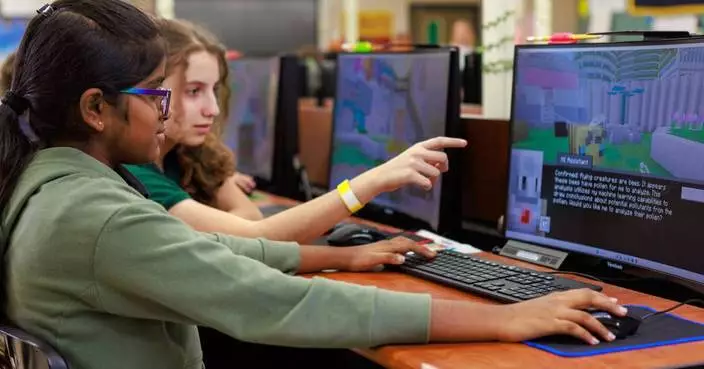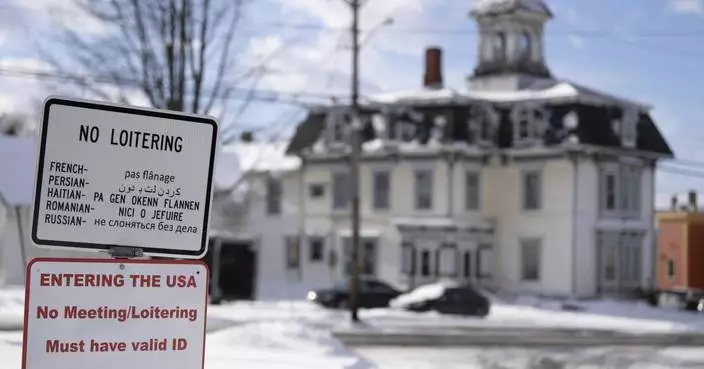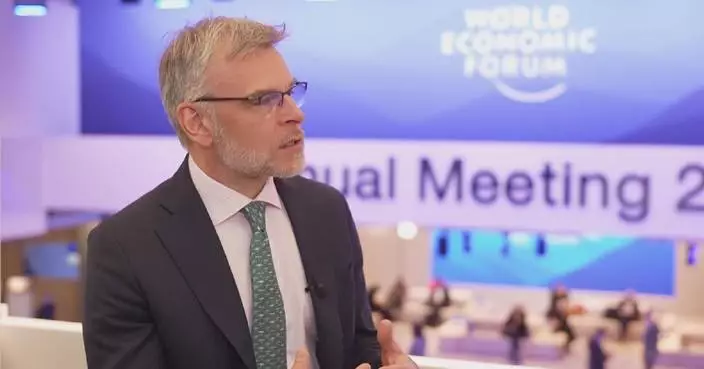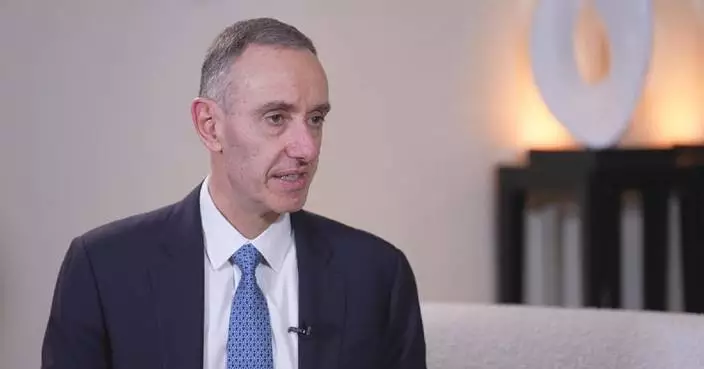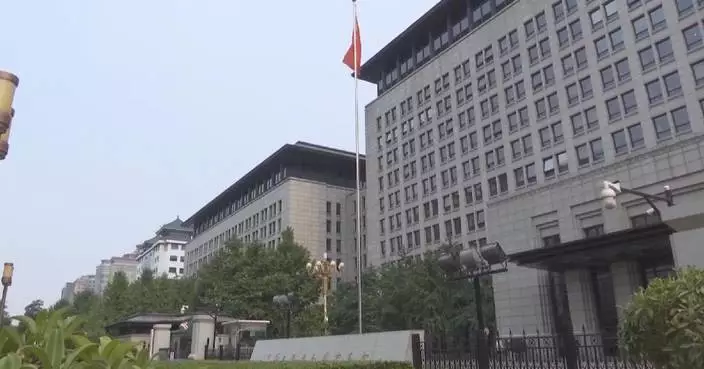Thirty years ago, while he was hiding from the machetes that killed his father, two of his brothers and an estimated 800,000 other people during the genocide against Rwanda's Tutsi minority, Pascal Kanyemera made a deal with God.
“Please, if I survive one more week, I will give you 100 Rwandan francs.”
God listened, so the 15-year-old prayed again. Then again. And again, until the killings stopped in July 1994.
“By the end of the genocide, I owed God 400 Rwandan francs,” said Kanyemera, now 45, from his home in Ottawa, the capital of Canada. “That shows you how I always put my life and my survival in his hands.”
His grandmother, uncles and cousins were also among the thousands of Tutsi killed by extremist Hutus in massacres that lasted over 100 days.
The genocide was ignited on April 6, 1994, when a plane carrying President Juvénal Habyarimana, a member of the Hutu majority, was shot down as it prepared to land in Rwanda's capital, Kigali. The Tutsi were blamed for downing the plane and killing the president. Enraged, gangs of Hutu extremists began killing Tutsi, backed by the army and police.
Kanyemera was hiding at a local school when his family was slaughtered on April 9. He learned about their deaths by late May, when he reunited with his mother and sisters at a refugee camp that was controlled by the French.
Other Tutsi witnessed the killings firsthand and barely survived to tell the tale.
In her book “Chosen to Die: Destined to Live,” Frida Umuhoza recounts how her mother was beheaded before her eyes. She gazed at her grandfather begging his assassins — Bible in hand — to let her family pray together one last time. She shuddered when the Hutu extremists coaxed her into choosing the weapon she would be killed with.
“Please, don’t kill me with anything else,” said Umuhoza, who was terrified of machetes and opted for a club.
Soon after, the 14-year-old felt a smack in the back of her head and all went dark. When she woke up, her heels were sliced open and her body covered in dirt inside the ditch where her relatives lay dead. She remained numb for hours, until one of her Hutu neighbors took pity on her and dug her out to a life of sorrow, orphanhood and anger.
“Sometimes, when people hear about what happened to us, they don’t believe it,” Kanyemera said. “Some men killed their kids, their own kids. Out of hate.”
Healing, he said, is a long process. But many survivors hold on to faith to bring back peace into their lives.
Umuhoza details in her book how becoming a Christian allowed her to forgive. Another survivor, Immaculée Ilibagiza, has written about hiding for 91 days in the tiny bathroom of a pastor’s house. Now a U.S.-based author, motivational speaker and devout Catholic, Ilibagiza often recounts how reciting the rosary drew out the pain and rage inside her.
Kanyemera — the current president of the Humura Association, which supports genocide survivors — has always attributed his survival to God.
Hutu militias patrolled the school where he was hiding, looking for the Tutsi who lived in the surrounding area, but he was never caught. And though the Hutu planned to kill the surviving Tutsi in the refugee camp where he was, French troops took over, so he survived.
As painful as it is, many survivors remain committed to remembrance. They visit schools to share their stories with younger generations. They write books. They speak to journalists, willing to reopen their wounds year after year, hoping that no genocide is ever committed again.
“Someone said that whoever forgets the past is condemned to relive it,” said Tarcisse Ruhamyandekwe, who lost a brother, uncles and aunts in 1994. “Our people, our families, were killed in unusual circumstances, so it is a way of giving them back the dignity they did not have.”
During the genocide, Hutu extremists engaged in extreme brutality. Killings were often preceded by beatings, torture and mutilation. Militias sang “Kill them all!” before reaching the homes of the families they would exterminate. An estimated 100,000 to 250,000 women were brutally raped, many of whom later needed reconstructive surgery or HIV/AIDS treatment.
“Rwanda was full of bodies,” said Ruhamyandekwe, who also lives in Ottawa. “Imagine you go back as a survivor and in your house you only find the bodies of your brothers and sisters.”
He, like Kanyemera, moved far from Rwanda to be safe. His first stop was Congo, where his parents sent him in 1985, fearing that the violence against Tutsi would escalate.
Survivors like them have emphasized that the genocide arose from longstanding Hutu-Tutsi animosity.
“I remember that, when I was 7 or 8, I used to see my dad taken by the military to jail,” Ruhamyandekwe said. “I remember thinking he was lucky because he came back. Other people did not; they were killed in jail.”
Discrimination, he said, was inflicted on the Tutsi from a very young age. Schools required teachers to keep a detailed registration of students. It was common for them to enter the classrooms and say: “All the Tutsi, stand up.”
“We carried our IDs to show our race and we could not escape,” Ruhamyandekwe said. “That's why during the genocide it was very simple to ask: ‘Where is your ID?’ And get the Tutsi killed.”
His father was not a victim of the Hutu, but when he died later in the 1990s — probably of a heart attack — Ruhamyandekwe was unable to bury him. “Taking that risk, going back to Rwanda, was probably going to get me killed," he said.
He has no pictures or material possessions from his life in Rwanda, but his memories of the country of a thousand hills remain intact.
A few years ago, he took his children there.
Nothing is left of the house where his parents — both teachers — raised him comfortably and lovingly, except for marks in the ground. And there, with his hands moving through the air, he “drew” his childhood home for his kids.
“I showed them where my room was. My brother’s, my sister’s,” Ruhamyandekwe said. “I told them: ’That’s the house where I grew up, but everything was destroyed.'”
Sharing his feelings has not been easy. Rwandans, he said, are not open with emotion, even within their own families. Crying or confiding in someone is discouraged from an early age. For him, though, writing has been like therapy. And there has been his faith.
“In my book I write about what I call ‘God’s invisible hand,’” Ruhamyandekwe said. “Some people say it’s luck, but I say it was God guiding me through all the stuff I went through.”
By writing, he has not only expressed himself, but tried to spread awareness about his people’s history.
“We cannot forget our loved ones,” Ruhamyandekwe said. “If reconciliation has to happen, as it is happening, we have to remember that and teach what happened to the next generation.”
“Someone said that there’s something stronger than death: It’s the presence of the dead in the memory of the living.”
This story has been corrected to fix Kanyemera's age and to show that French troops took over a refugee camp when he was already there.
Associated Press religion coverage receives support through the AP’s collaboration with The Conversation US, with funding from Lilly Endowment Inc. The AP is solely responsible for this content.
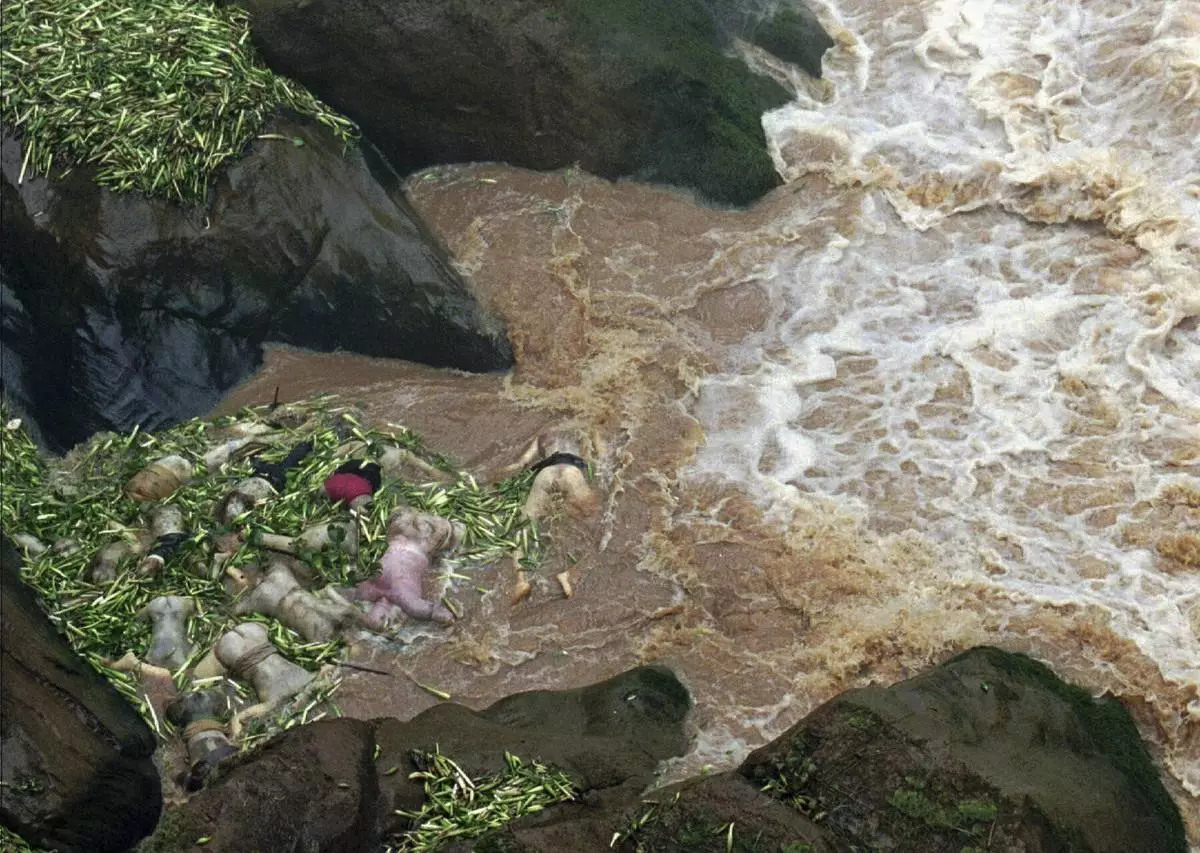
EDS NOTE: GRAPHIC CONTENT - FILE - Bodies of slaughtered Rwandans float at the bottom of a fall on the Kagera River marking the border between Rwanda and Tanzania near the bridge at Rusumo, Tanzania, on May 2, 1994. Hutu extremists slaughtered close to 800,000 Tutsi in massacres that lasted over 100 days. (AP Photo/Jean-Marc Bouju, File)
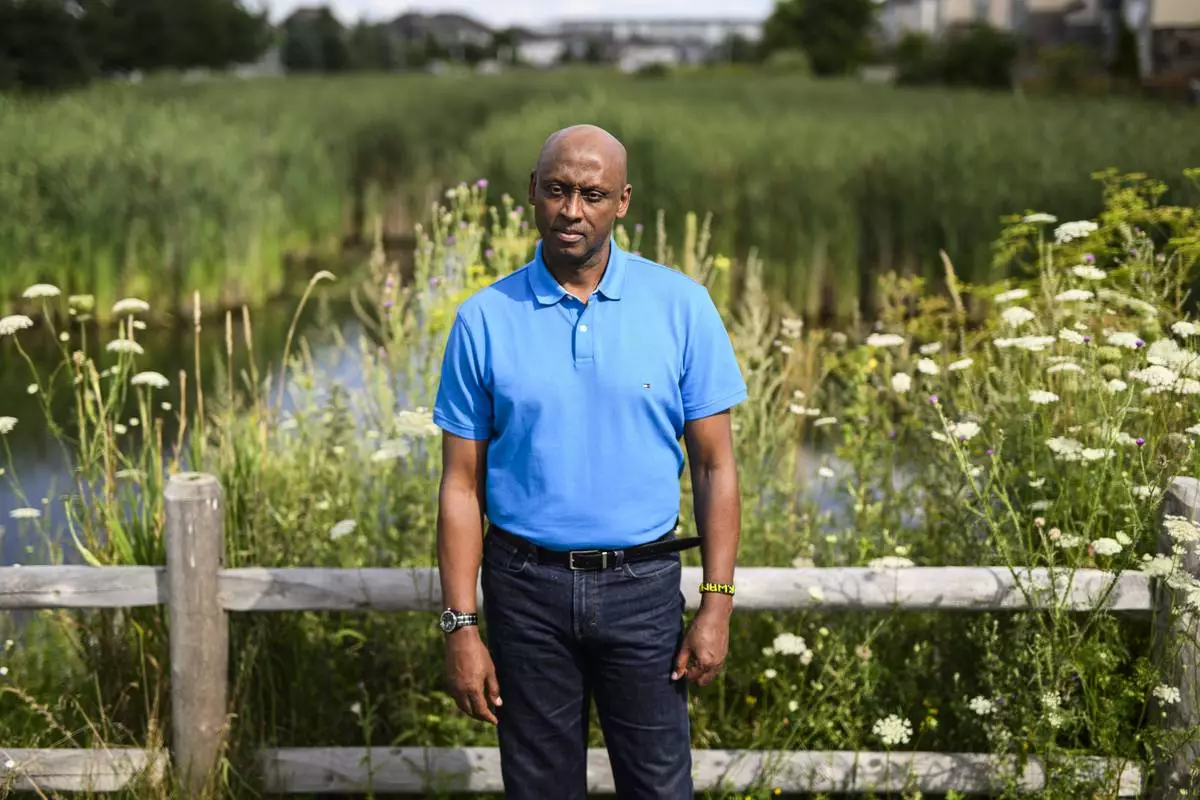
Tarcisse Ruhamyandekwe stands for a portrait near his home in Ottawa, Ontario, Canada, on Friday, July 19, 2024. (AP Photo/Justin Tang)
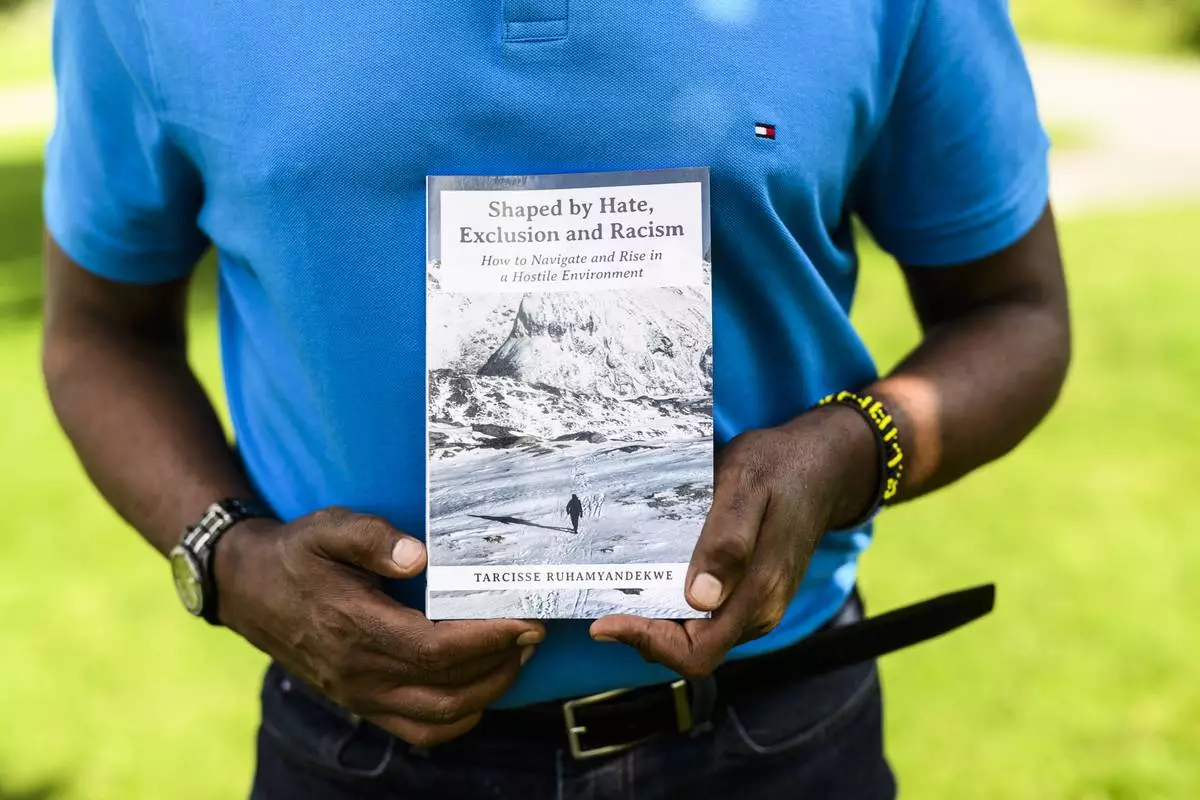
Tarcisse Ruhamyandekwe holds his book near his home in Ottawa, Ontario, Canada, on Friday, July 19, 2024. “In my book I write about what I call ‘God’s invisible hand,’” Ruhamyandekwe says. “Some people say it’s luck, but I say it was God guiding me through all the stuff I went through.” (AP Photo/Justin Tang)
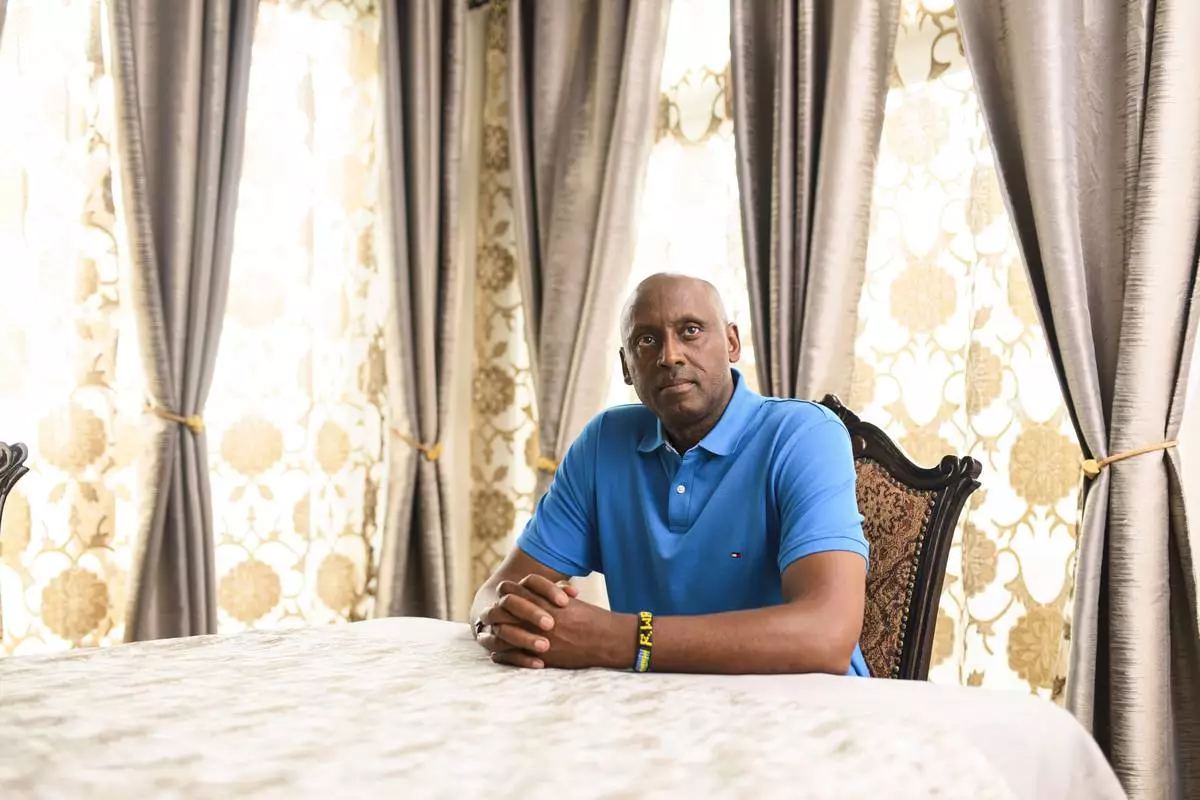
Tarcisse Ruhamyandekwe sits for a portrait at his home in Ottawa, Ontario, Canada, on Friday, July 19, 2024. (AP Photo/Justin Tang)
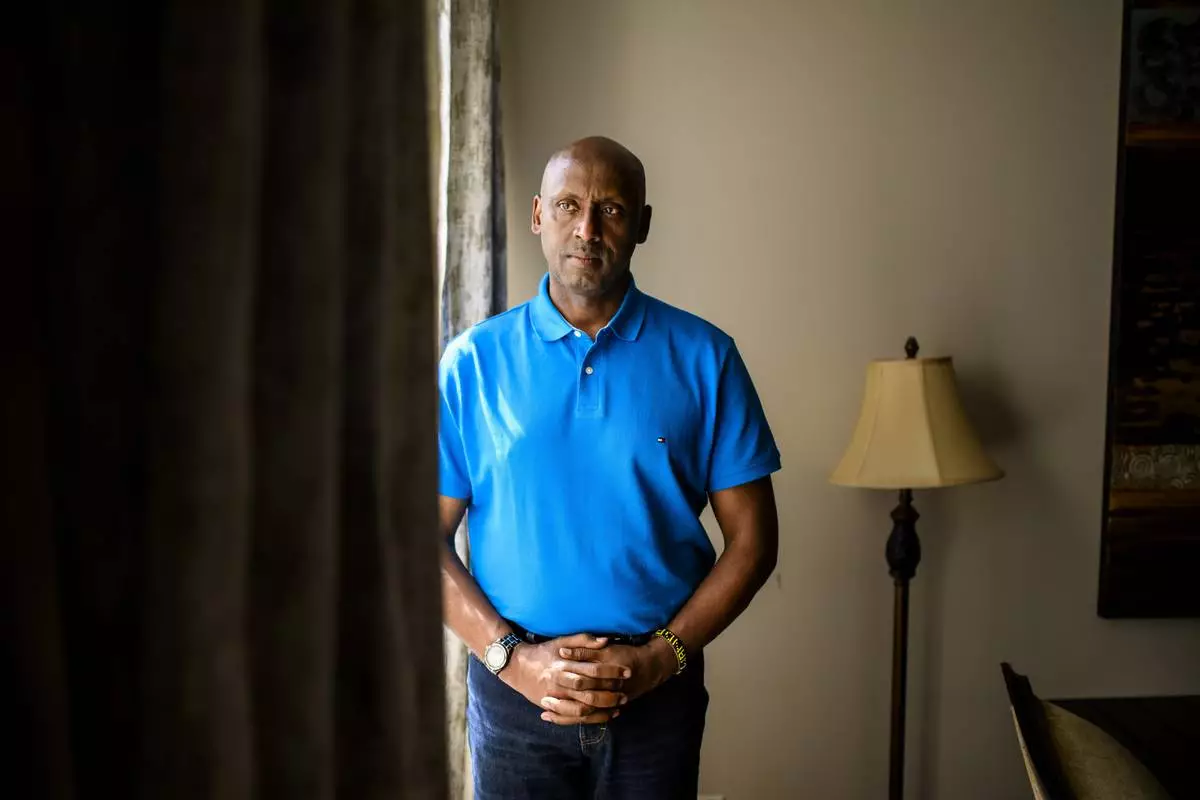
Tarcisse Ruhamyandekwe stands for a portrait at his home in Ottawa, Ontario, Canada, on Friday, July 19, 2024. (AP Photo/Justin Tang)
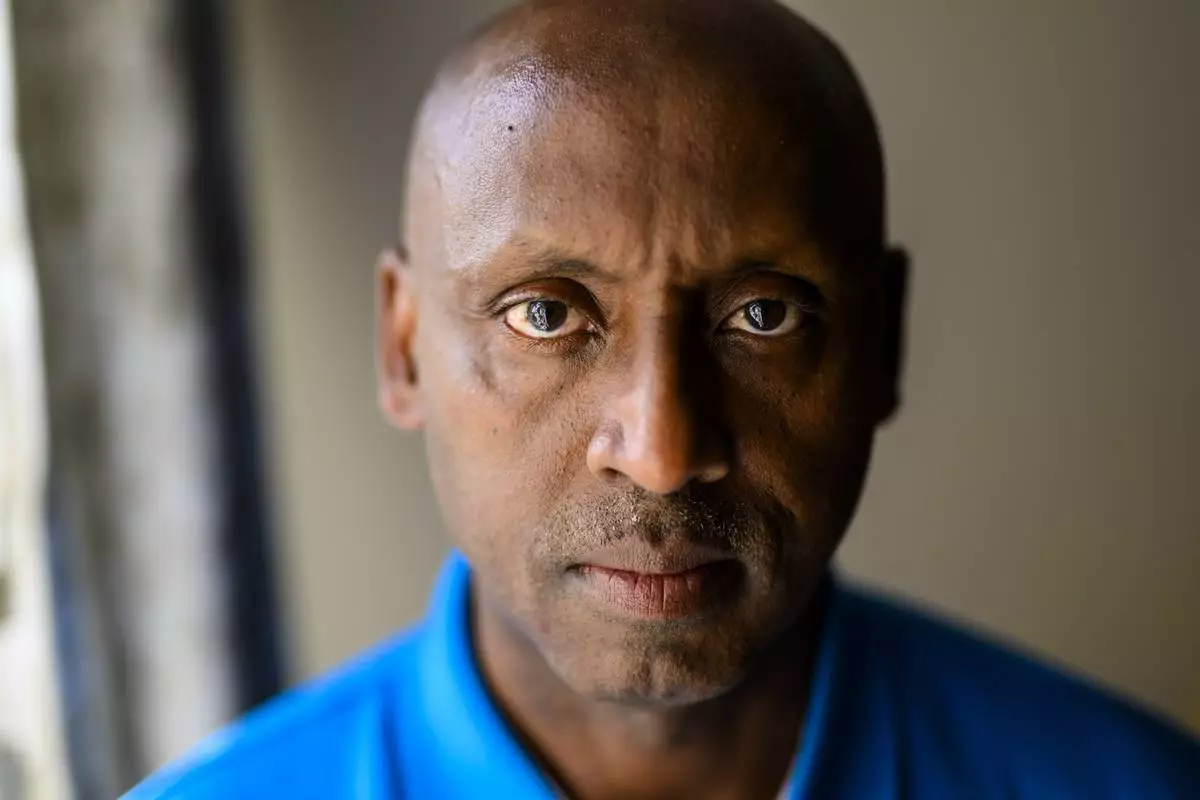
Tarcisse Ruhamyandekwe stands for a portrait at his home in Ottawa, Ontario, Canada, on Friday, July 19, 2024. (AP Photo/Justin Tang)
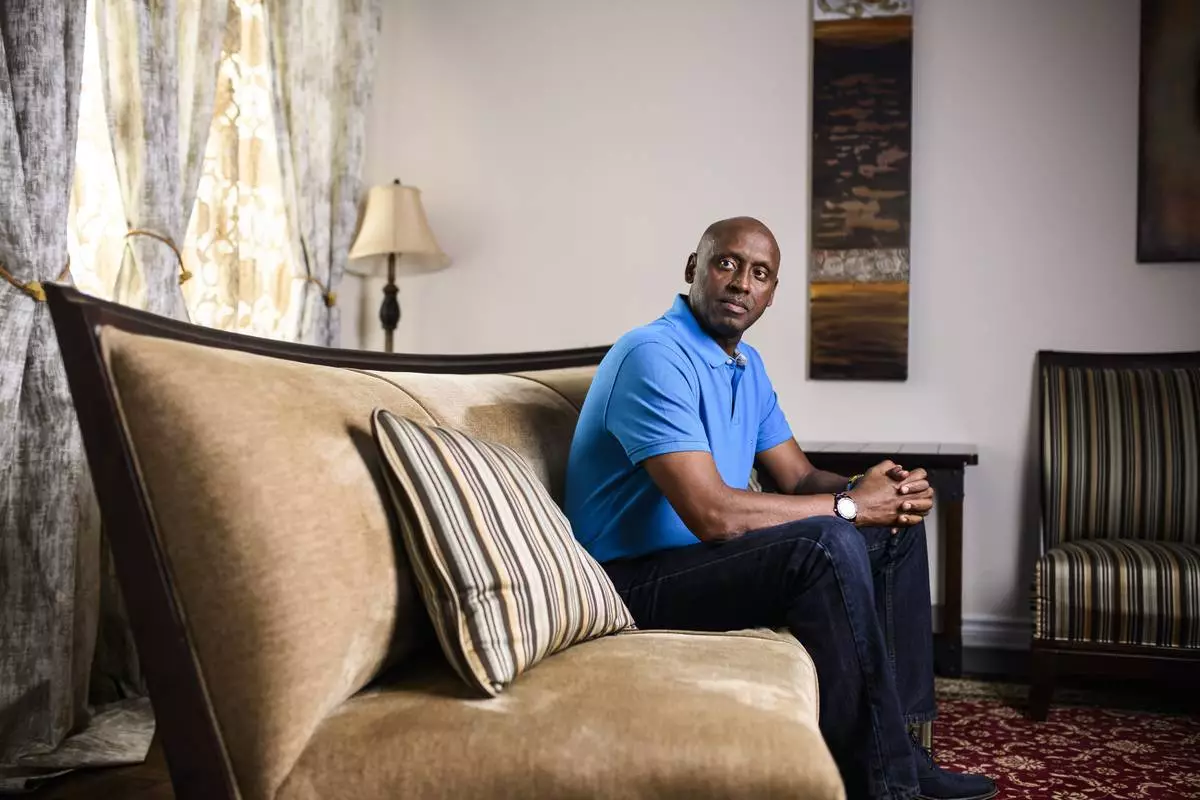
Tarcisse Ruhamyandekwe sits for a portrait at his home in Ottawa, Ontario, Canada, on Friday, July 19, 2024. “Someone said that whoever forgets the past is condemned to relive it,” says Ruhamyandekwe, who lost a brother, uncles and aunts in the 1994 Rwanda genocide. (AP Photo/Justin Tang)
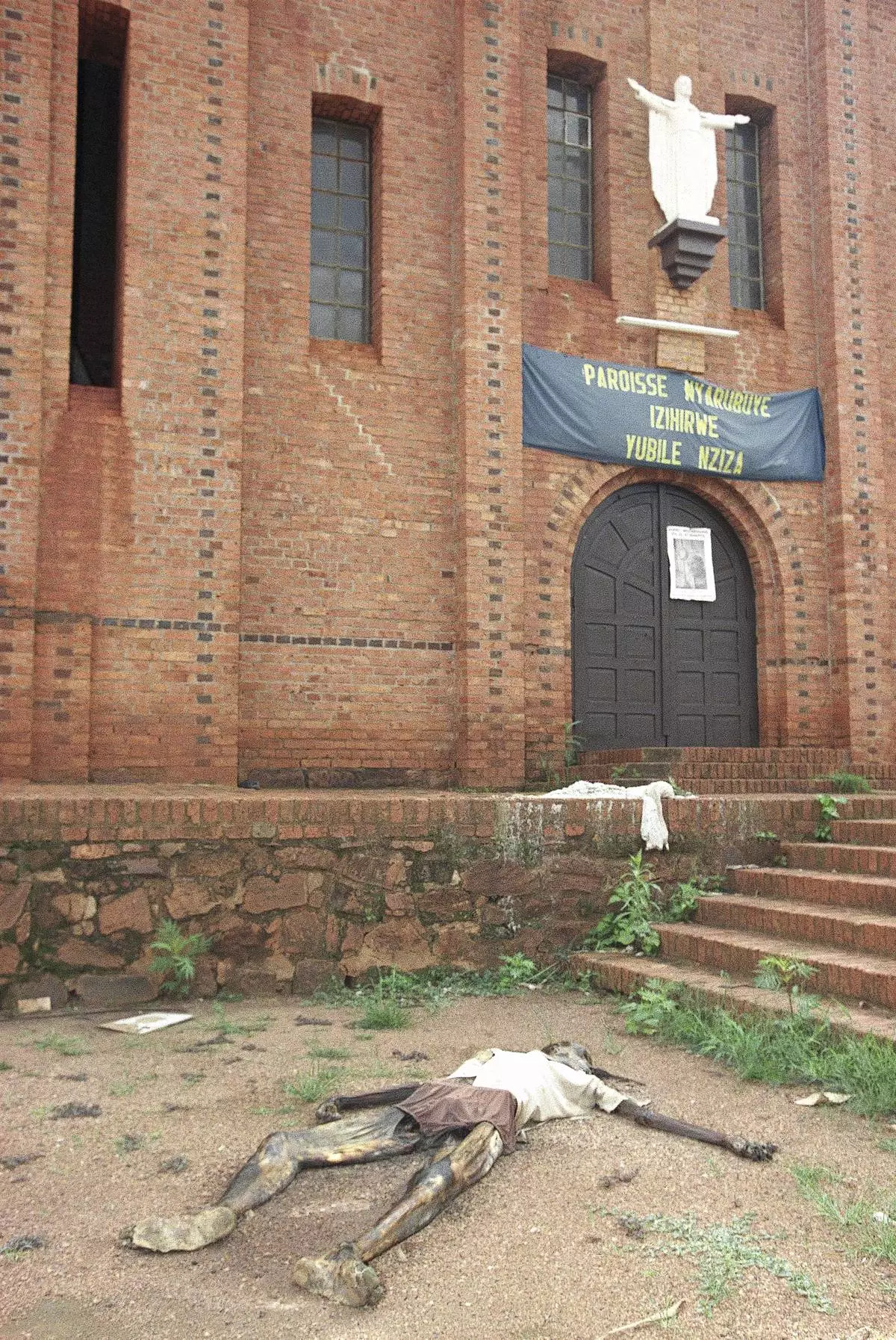
EDS NOTE: GRAPHIC CONTENT - FILE - A man lies dead at the entrance to the Nyarubuye Roman Catholic Church in Njarubuje, Rwanda, east of Kigali, on May 31, 1994. Hutu extremists slaughtered close to 800,000 Tutsi in massacres that lasted over 100 days. (AP Photo/Jean-Marc Bouju, File)
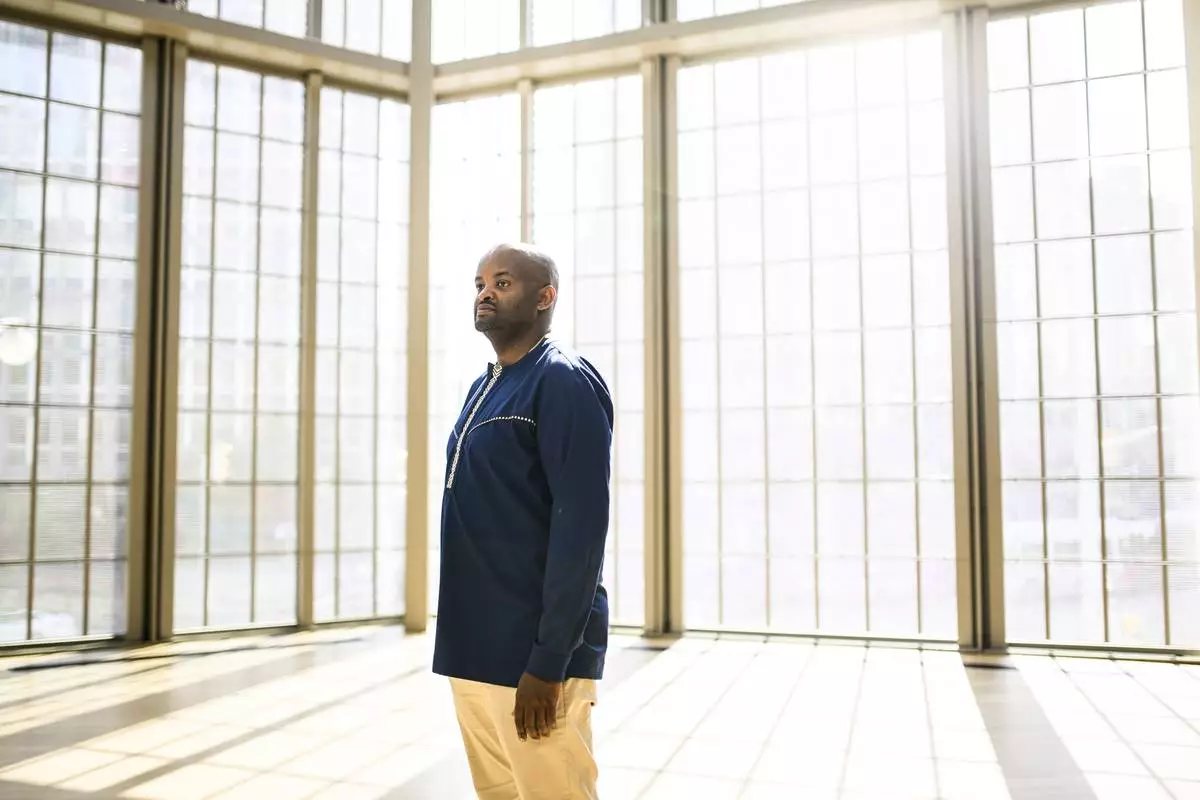
Pascal Kanyemera stands for a portrait at the National Arts Centre in Ottawa, Ontario, Canada, on Wednesday, July 17, 2024. (AP Photo/Justin Tang)
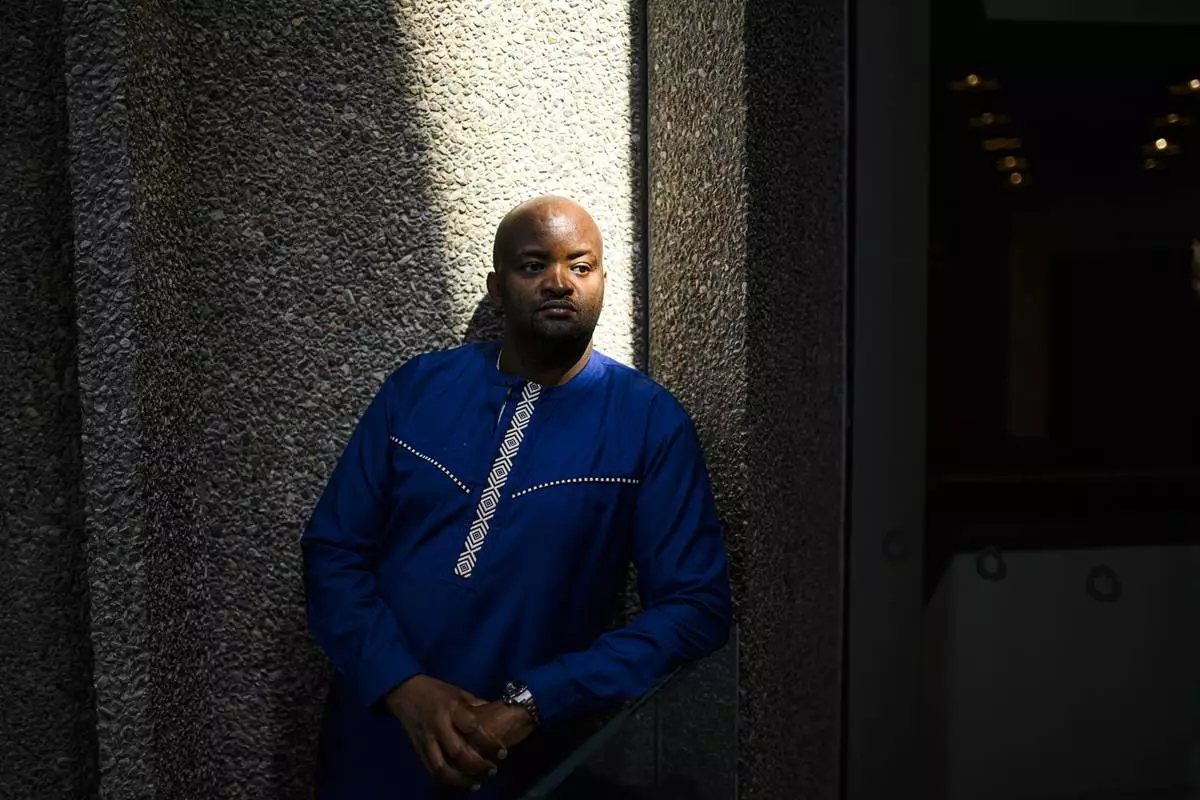
Pascal Kanyemera stands for a portrait at the National Arts Centre in Ottawa, Ontario, Canada, on Wednesday, July 17, 2024. (AP Photo/Justin Tang)
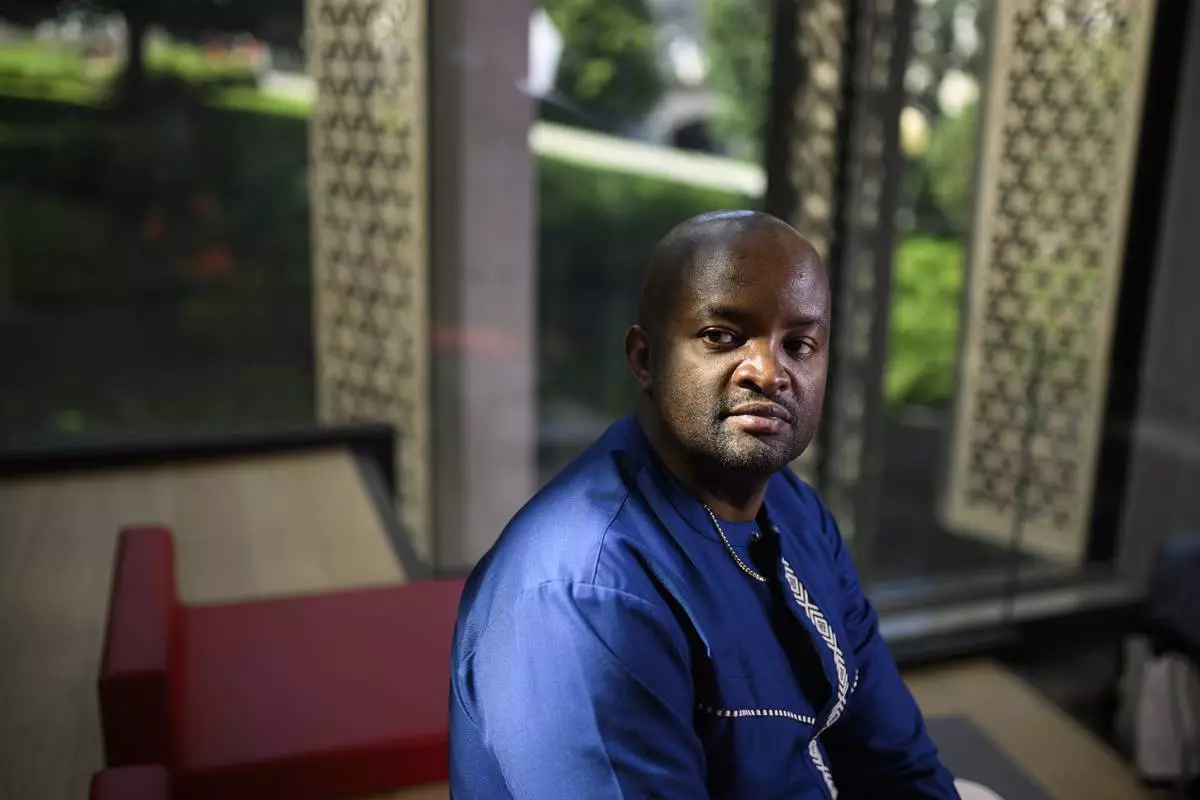
Pascal Kanyemera sits for a portrait at the National Arts Centre in Ottawa, Ontario, Canada, on Wednesday, July 17, 2024. (AP Photo/Justin Tang)
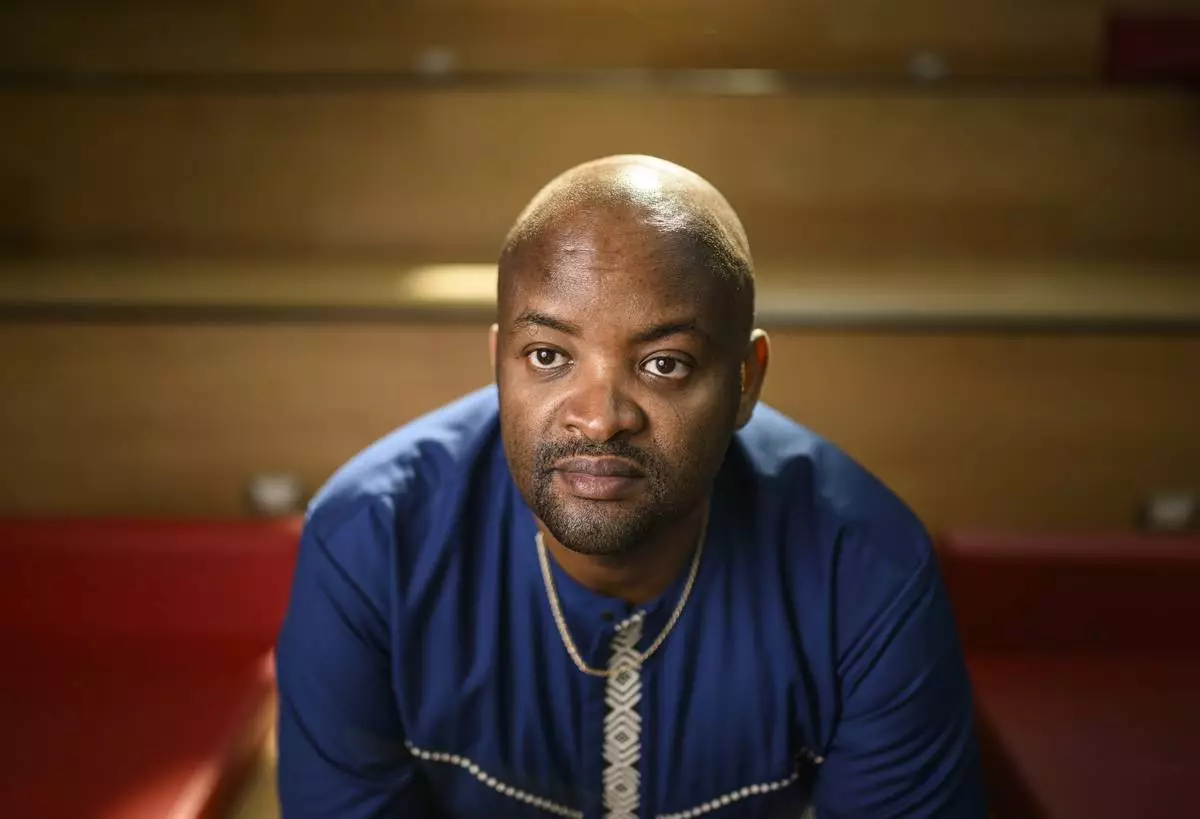
Pascal Kanyemera sits for a portrait at the National Arts Centre in Ottawa, Ontario, Canada, on Wednesday, July 17, 2024. (AP Photo/Justin Tang)
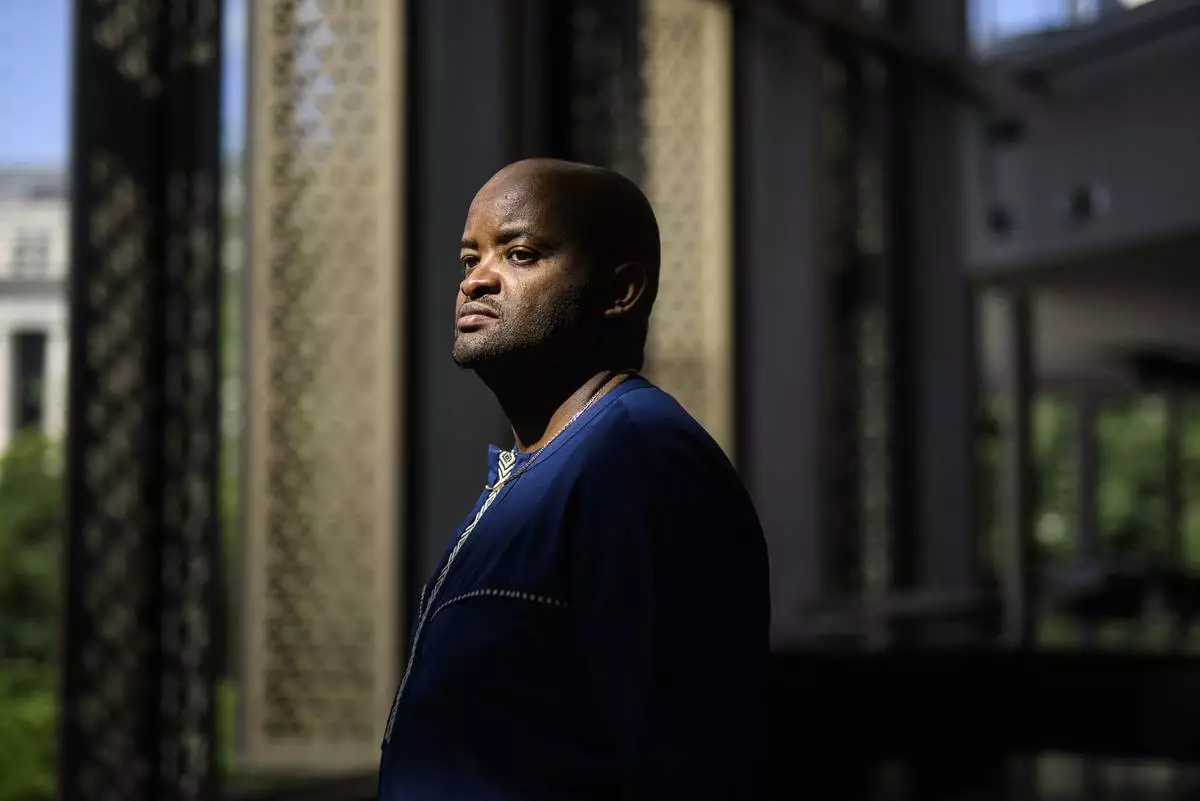
Pascal Kanyemera is shown at the National Arts Centre in Ottawa, Ontario, Canada, on Wednesday, July 17, 2024. Kanyemera has no doubts: Back in 1994, when he survived the genocide against the Tutsi in Rwanda, God had his back. (AP Photo/Justin Tang)


